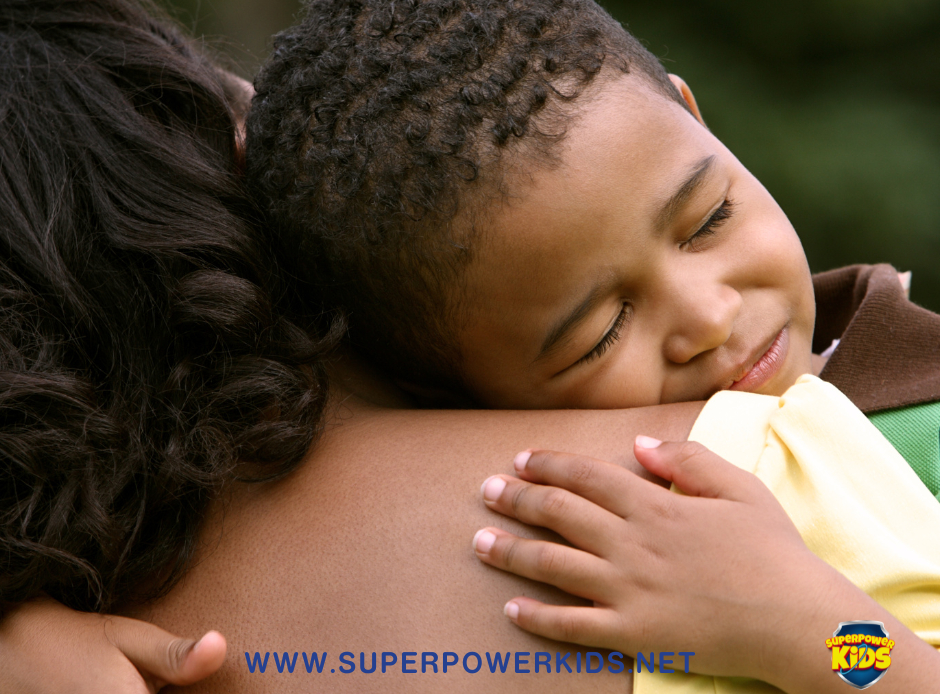
Whether your child’s father has passed away, your family is going through a bitter breakup; you are a single mum by choice or an LGBTQ family. It can be challenging for a child to go through a father’s day without a father. In this article we will share some tips on how to help your child navigate Father’s Day without a father.
While school activities to celebrate Father’s Day are usually fun and exciting and a time to express our gratitude for all the work fathers put in. But unfortunately, father’s Day can bring confronting, confusing and negative emotions for the kids growing up in an unconventional family.
My father passed away when I was a child, and I remember having a hard time coping when my whole class was crafting father’s day gifts and taking excitedly about the father’s day celebrations. I didn’t feel like participating because it reminded me that I wasn’t going to have my dad at school celebrating with me. But unfortunately, I also didn’t have a grandfather, a stepdad or an uncle to fill the role. All I had was my mum. While she was great and doing her best to play both roles, she would never be able to replace the relationship I had with my father.
Together, my mum and I decided that she should no longer try to fill his place. Instead, on father’s day, we would celebrate my dad and our memories. I would still make a father’s day card at school and put it with his photos in an album. She would let me stay home with my aunty on school father’s day, and we would go out together on the weekend and do something fun.
Here are some tips on how to help your child navigate Father’s Day without a father
Be Prepared for Questions
Father’s day may spark your child’s curiosity. Be prepared to answer complex questions: “Where is dad?”, “Why has dad left us?”, “Why did dad die?”, “How was I born without a dad?”, “Why do I have two mums or two dads?”.
Depending on your family situation, a feeling of guilt could also cloud your child’s mind and questions like “Was it my fault he left?”, “Did he not love me?” or “Who is my biological dad?” may catch you off guard.
These types of questions are not only difficult for us as parents but also for our children. So think about what questions your child might ask you and prepare great answers for them.
When preparing your answers, keep in mind your goal. Your goal is to support your child and help them feel safe and loved regardless of your family situation.
- Answer the questions honestly
- Share age-appropriate information
- Reassure your child that regardless of your family situation, they are loved
- Pain the absence of the father in a positive light. (Even if your child’s father left because of the pregnancy sharing this information with your child is likely to cause damage.)
Children tend to feel responsible for things they shouldn’t, especially regarding their parent’s happiness.
Having realistic, age-appropriate conversations about why dad isn’t there can be an opportunity for teaching and sharing intimacy. It also gives you a chance to validate their emotions.
Let your child know their feelings are normal and they are not responsible for their father’s decision not to be part of the family. This process of validation and reassurance can help alleviate confusion and leave them feeling better understood.
Celebrate with other male role models
If your child has a good relationship with another male role model, ask them to step in. It could be a grandfather, stepfather, godparent, uncle or family friend. But only if this person is already involved in your child’s life. Inviting uncle John whom you haven’t seen for the past six months, will make the celebration awkward.
Make a plan for father’s day
Find ways to spend time as a family and make new memories. Quality family time is essential regardless of your family structure. Starting a new family tradition is an excellent way to take the attention away from the things we don’t have and be grateful for the things we do have. If you need help starting a new family tradition, you can find some ideas here.
Explain that all families are different
Explain to your child that families come in different shapes and sizes. And there is nothing wrong with it! Just like individuals, all families are different, and that is the beauty of diversity.
Watch out for the bullies
Unfortunately, your child’s vulnerability will be a magnet for bullies. Be on the lookout.
Unless your child tells you about bullying or has visible bruises or injuries, it can be hard to know if it’s happening.
But there are some warning signs. Parents might notice kids:
- Acting differently or seeming anxious
- Not eating or sleeping well, or not doing the things they usually enjoy
- Seem moodier or more easily upset than usual
- Avoiding certain situations (like taking the bus to school)
If you suspect bullying, but your child is reluctant to open up, find alternate ways to bring up the issue. For example, you might see a situation on a TV show and say, “Oh, that was mean; what would you do if that happened to you?” or “What do you think that person should have done?”.
It is helpful to help your child prepare and practice some responses. Help your child create a list of verbal responses to stop bullying. This could be using direct assertive language such as “Leave me alone.” “Go away.” “Back off.” “That wasn’t nice.” Or “Whatever.” and walk away. It is important that the response is neutral and not an attack on the bully, as this can aggravate the bully’s behaviour. For more information on how to stop bullying, check this article.
Father’s day without a father can make children often feel a sense of emptiness, loss or discomfort. This can be compounded by the fact that they may feel like they are the only ones who don’t have a dad around. To help your child feel loved and supported, we’ve put together a list of activities to help your child navigate Father’s Day without a father by filling your day with good family memories.
Tip: You can use the activities with or without a father’s presence.




